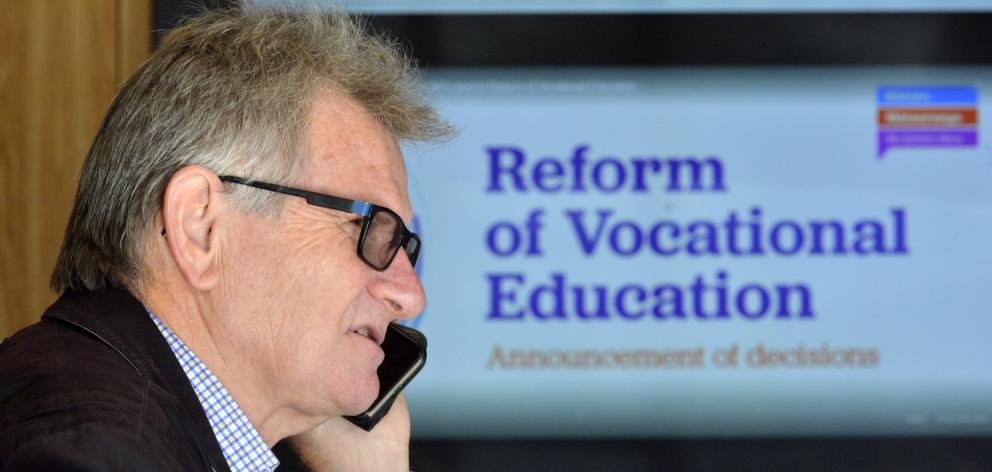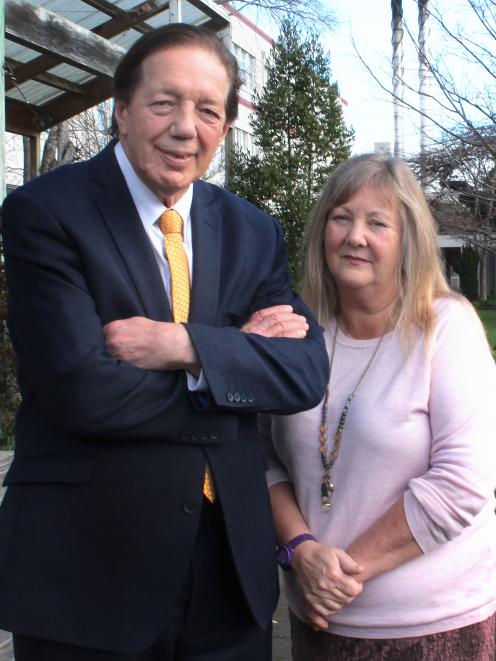The plan, released yesterday by Education Minister Chris Hipkins, showed a single national institute remained the Government's preferred option, a massive shake-up of the struggling polytechnic and institute of technology sector.

The details of how that decision would be made were not included in the Summary of Change Decision.
Otago Polytechnic chief executive Phil Ker said it would fight to keep a subsidiary status.

Dunedin National MP Michael Woodhouse described the changes as "devastating" but Mr Ker said it appeared the Government had picked up on the tenor of the polytechnic's submission, including the notion polytechnics could build off the strengths of high performers.
"It's as good as could realistically have been expected," he said.
"It's a long way from the worst-case scenario.
"I think that we owe it to our community for supporting us to make the best of this system."
The merger has been opposed by both the Southern Institute of Technology and Otago Polytechnic since being proposed by Mr Hipkins earlier this year.
Under the new plan, the overarching institute will have a national headquarters - the location of which is yet to be decided, but which will not be in Auckland or Wellington.
The plan includes setting up centres of vocational excellence at regional campuses and establishing four to seven industry-governed Workforce Development Councils.
It also calls for greater Maori involvement, and a "unified and simplified" dual funding system, to be introduced after two years.\
A glaring omission in the plan was an immediate injection of extra funding, which would bring the sector into surplus and enable polytechnics to prove they could operate well, Mr Ker said.
Otago Polytechnic was suffering as Immigration New Zealand struggled to process the backlog of international student visas.
Polytechnic director of people and culture Laura Warren said staff were thankful for the long transition period.
"It's more or less what I was expecting. I think the thing that perhaps surprised me the most was just how little details have been worked out already."

Despite optimism at Otago, the announcement was not well received in Southland, Mayor Tim Shadbolt saying the merger would rip the Southern Institute of Technology to shreds.
The Invercargill City Council held a extraordinary meeting yesterday to decide what action to take.
Sir Tim said it would get a legal opinion and, if necessary, take the matter to courts.
"We feel devastated about this proposal, but we are not demoralised. We certainly will fight back."
SIT chief executive Penny Simmonds agreed.
"It is hugely disappointing for SIT and the Southland community."
Asked about the possibility of SIT becoming a subsidiary, she said it was possible but had no assurances.
"There is no detail of how it could work. It is really an issue for us to try to have a blind faith after all."
In Balclutha, Telford farming institute staff reacted to the announcement with a mix of frustration and optimism.
One staff member, who asked not to be named, said the devil would be in the detail.
"It's frustrating there's nothing of substance regarding Telford or SIT today, but it's clearly good news we remain open in the short-term at least," they said.
Mr Ker said the polytechnic had "absolute certainty" there would be no job changes resulting from reforms until April 1.
Comments
This policy was in Labour's 2017 manifesto so appears unlikely that any listening has happened since. The 2 year grace period is no doubt designed to push the controversy to the other side of the next election.
